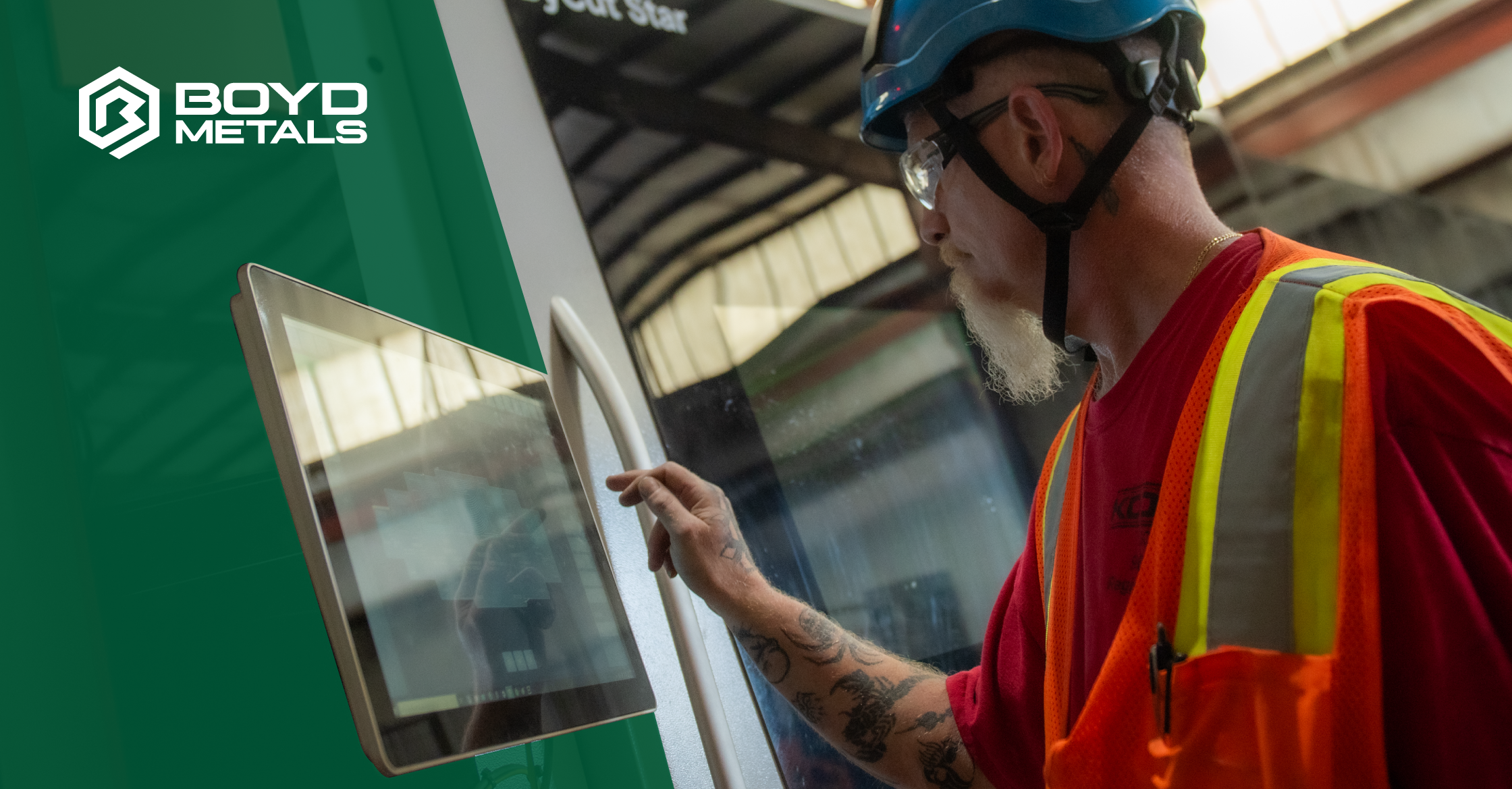Upper management wants projects done faster and cheaper, the job site breathes down your neck about material delays, and you need to make it all work without any hiccups. Technology is changing how metal service centers operate, and it's making project management easier.
At Boyd Metals, we see how the right manufacturing technology helps project managers in the steel industry stay ahead of those dreaded "where's my material" calls and keeps budgets on track. Here's what's happening and how it affects your day-to-day operations.
Project Management Challenges in the Steel Industry (You Know Them Well)
If you manage projects in the steel industry, you deal with the same frustrations every day. Late deliveries mess up your entire timeline when material doesn't show up as promised, leaving crews standing around while management notices your name on the project schedule. Playing phone tag becomes your daily routine with "Is my order ready?" followed by "Let me check and call you back," while you handle three other fires and face pressing deadlines.
Vendor communication breakdowns happen when your metal service center's inventory system shows one thing, their production schedule shows another, and nobody knows what's actually happening with your order. Budget surprises appear when material costs change, lead times stretch, and your carefully planned project goes over budget with no good explanation for management. Technology addresses these project management pain points directly.
Technology Solutions Transforming Steel Industry Project Management
Project management no longer requires playing phone tag all day just to find out if your material is in stock. Today's metal service centers track everything—customer orders, inventory counts, machine schedules—and store all that information in one place where software crunches the numbers. Instead of hearing "let me check and get back to you," you receive real answers about delivery times and material availability. This means you know when that special steel will arrive, and you can plan your timeline with confidence.
- Data Technology and Metal Service Center Inventory Management
Many metal service centers now tag every bundle of material that comes through the door, with each tag showing the producing mill, where it came from, heat numbers, test reports, and exactly where it sits in the warehouse. For project managers, this means when you need to track down material specs or prove compliance, everything is right there without scrambling through paperwork or waiting for someone to dig through files. This technology eliminates the documentation headaches that delay project approvals and keeps your compliance documentation organized and accessible. - Steel Industry Software Solutions for Project Management
When your metal service center's left hand doesn't know what the right hand does, projects suffer from miscommunication and delays. This changes with better business management software that connects everything—inventory, production, purchasing, sales—in one integrated system. Project managers working with metal service centers benefit from fewer surprises because you receive real-time updates on your order status, advance notice if delays develop, and one point of contact who knows what's happening with your project. The steel industry adopts modern software, and when your metal service center sees the whole picture, they keep you informed instead of leaving you to guess about critical project timelines. - Manufacturing Automation Benefits for Project Managers
Manufacturing technology changes how metal service centers process your orders. Automation means laser cutting systems that automatically load material, process it, sort it, and stack it with minimal human intervention, which creates more predictable timelines for your project management. When a metal service center runs manufacturing operations around the clock with automated systems, you receive faster turnaround and more reliable delivery schedules without those frustrating "sorry, we had to wait for the operator to come back from lunch" delays.
Boyd Metals' Prima Power laser machines demonstrate this automation advantage by handling complex cuts while operators focus on other tasks, keeping your projects moving forward consistently.
Integrated Technology Solutions for Project Management Success
These technologies don't work in isolation, and when your metal service center combines smart data tracking, integrated software, and automated manufacturing, you receive solutions that directly address your biggest project management challenges:
- Predictable delivery schedules because the system knows exactly what's in stock, what's being processed, and when it will be ready.
- Proactive communication because integrated software alerts you to potential delays before they become project-killing problems.
- Accurate pricing and timelines because real data eliminates the guesswork that leads to budget surprises.
- Fewer vendor headaches because you work with metal service centers that have their operations organized and coordinated.
The integration creates a seamless workflow where each technology supports the others to deliver consistent results. This coordinated approach eliminates the gaps and miscommunications that typically cause project delays and budget overruns.
Why Modern Metal Service Center Technology Matters for Current Projects
While the steel industry continues evolving toward full digital integration, your current project management requires reliable partners with proven capabilities today. The metal service centers that embrace these technologies deliver on their promises—on time, on budget, with fewer headaches for project managers like you. Understanding what manufacturing technology your metal service center brings to each project makes the difference between meeting deadlines and costly delays, and it's not just about having the latest equipment—it's about having systems that work together to support your project management success.
Want to learn about specific manufacturing technology and equipment capabilities? Click here for our equipment specifications at each Boyd Metals location.




